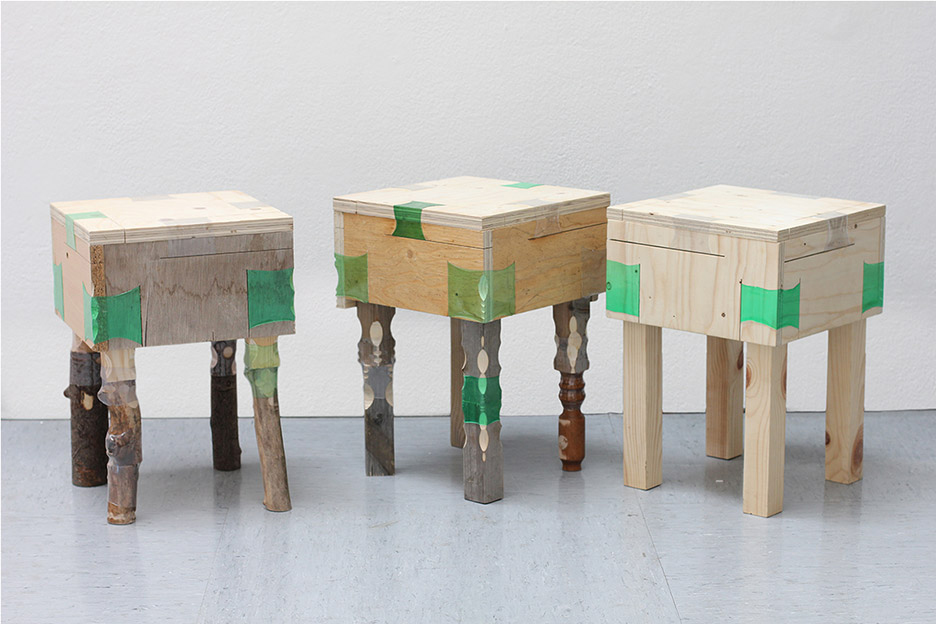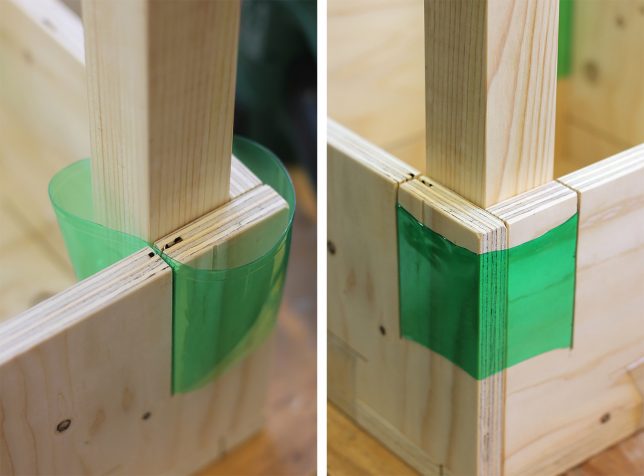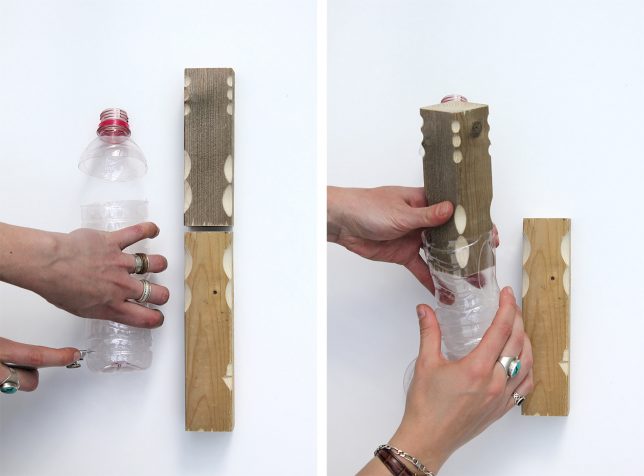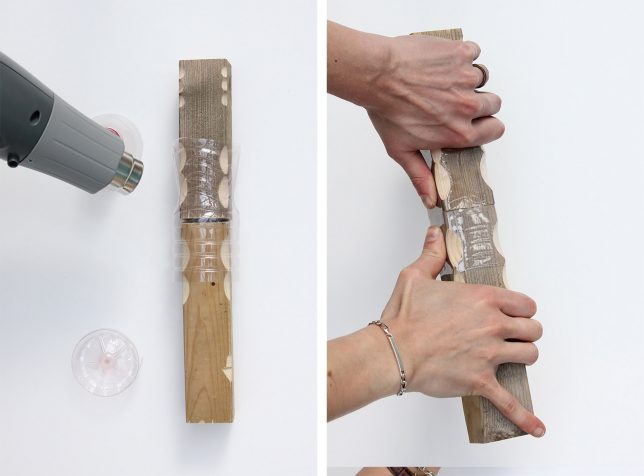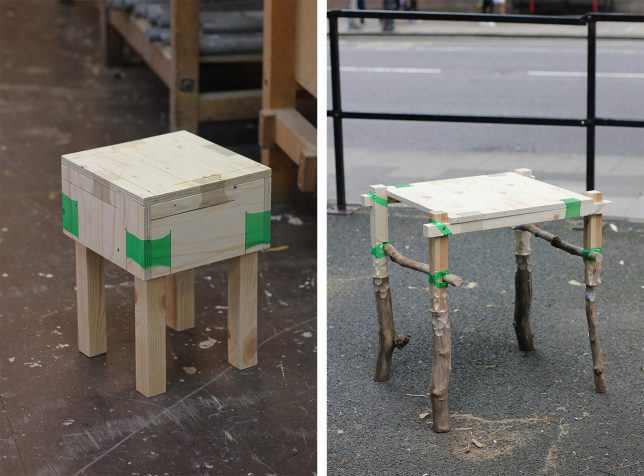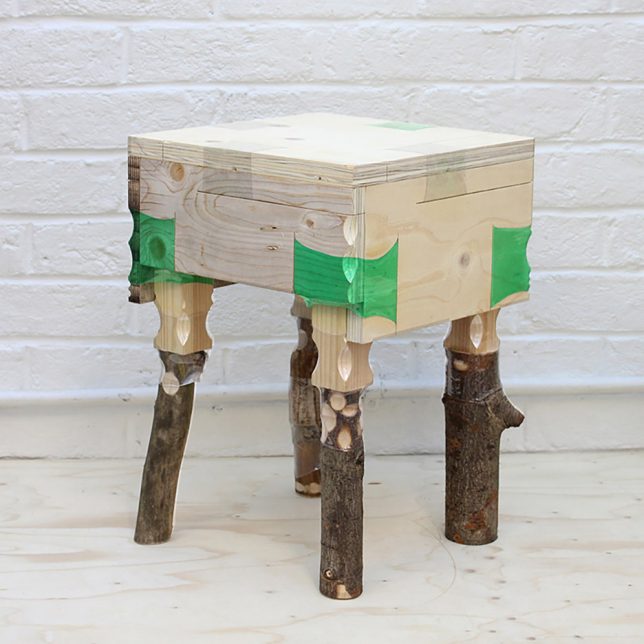Using scraps from start to finish, this shrink-wrap approach to furniture is not only greener but faster and leaner, requiring less by way of specialized skills or tools and allowing people to build easier do-it-yourself objects. A project of Micaella Pedros for the Royal College of Art, the Joining Bottles project uses heat to shrink plastic around wood joints, collected from around London, locking them together.
“The idea is about taking a plastic bottle, cutting it, and then putting it around two pieces of wood., Pedros explains. “Then I heat it so it shrinks and creates a joint.” The key part of the process is the notching of the wood, which gives the plastic a way to grip the disparate pieces and lock them firmly into place.
Traditionally, joinery is the most complex, time-consuming and often high-tech part of the furniture-making process, making this innovative approach a welcome alternative for those without the time and resources to spend months building custom pieces.
On the flip side, cutting and notching tools are commonplace and able to be improvised, meaning: a would-be Joining Bottles-type builder would not need access to a sophisticated wood shop. Scissors, a hair dryer or other heating element and simple carving tools will suffice. They key is in making the connections follow common sense: flat-to-flat helps, and complex angles may fail.
This is not about marketing a new line of garbage chic furniture, but about sharing knowledge about easier ways for ordinary people to upcycle everyday trash. “The core idea of the project is not to sell the products I’m building but more about sharing the principle and sharing the technique.” She is running workshops to show people how to follow her lead, enabling them to walk in with junk and walk out with furniture.
The idea hinges on the global similarity of plastic bottles amid a sea of different types of wood. Basically, anyone in any place can find the same plastics and use them to connect whatever woods are locally available. The aesthetic results are up to the end user (or maker): there are many ways one could refine the look and feel of this general design approach.
